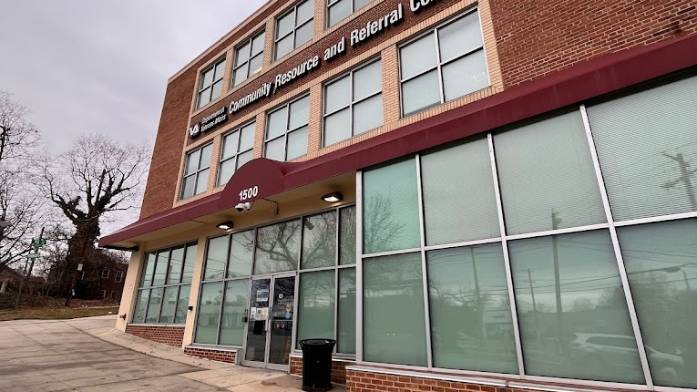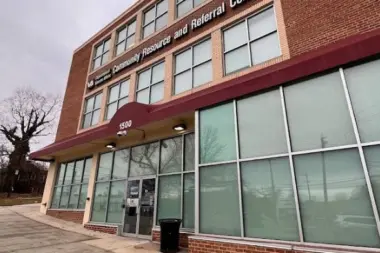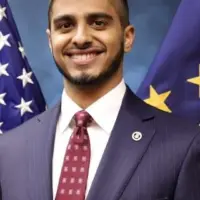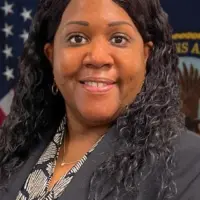About Washington DC VAMC – Community Resource and Referral Center
Located in northeast Washington, DC is the Washington DC VAMC Community Resource and Referral Center, also known as the Franklin Street Clinic. This clinic offers outpatient services including dedicated mental health support to address struggles with drug and alcohol addiction. They also focus specifically on helping connect vets who are homeless to services within the community.
They provide telehealth care for easier access to the services you need. While public transportation options like the Metro System can help you get to the clinic, the VA also offers transportation services to ensure your care is accessible. Because of its central location, veterans from Maryland and Virginia can also receive care here.
Dedicated Support for Veterans Who Are Homeless
This VA Clinic stands out because its services are specifically designed to serve veterans who are homeless or at risk of homelessness. You can be referred to various community agencies throughout the nation’s capital and surrounding areas to help you find a safe and stable place to live.
Mental Health and Addiction Support
With their mental health department on site, this clinic also offers treatment to veterans struggling with mental health disorders or a co occurring substance abuse disorder.
While the Franklin Street Clinic does not have a dedicated addiction recovery program on site like some other VA clinics might have, their mental health department can refer you to other services within the VA network if you need more intentional addiction support. This clinic is best for those who are already working through a treatment plan and need routine check ins with a behavioral or mental health provider.
Referrals are typically provided for veterans who have moderate to severe substance abuse and may need detox or inpatient treatment. The VA network is extensive and you will get connected to the care you need at any level.
Women’s Healthcare Services
The Franklin Street Clinic also offers dedicated services for female veterans. Women’s primary healthcare, gynecology services, and female specific screenings like pap smears and mammograms are available here. This department also supports female veterans who have experienced trauma that may have contributed to substance abuse.
Latest Reviews
Rehab Score
Gallery


Other Forms of Payment
Self-pay involves paying for treatment out of your own pocket. You can use savings or credit, get a personal loan, or receive help from family and friends to fund your treatment. If you don't have insurance or your insurance plan doesn't cover a specific program, self-pay can help ensure you still get the care you need.
Medicaid is a state based program that helps lower-income individuals and families pay for healthcare. Medicaid covers addiction treatment so those enrolled can use their coverage to pay for rehab. When a program accepts Medicaid the client often pays very little or nothing out of their own pocket.
Military members, veterans, and eligible dependents have access to specific insurance programs that help them get the care they need. TRICARE and VA insurance can help you access low cost or no cost addiction and mental health treatment. Programs that accept military insurance often have targeted treatment focused on the unique challenges military members, veterans, and their families face.
Medicare is a federal program that provides health insurance for those 65 and older. It also serves people under 65 with chronic and disabling health challenges. To use Medicare for addiction treatment you need to find a program that accepts Medicare and is in network with your plan. Out of pocket costs and preauthorization requirements vary, so always check with your provider.
Financial aid can take many forms. Centers may have grants or scholarships available to clients who meet eligibility requirements. Programs that receive SAMHSA grants may have financial aid available for those who need treatment as well. Grants and scholarships can help you pai for treatment without having to repay.
Addiction Treatments
Levels of Care
Outpatient Programs (OP) are for those seeking mental rehab or drug rehab, but who also stay at home every night. The main difference between outpatient treatment (OP) and intensive outpatient treatment (IOP) lies in the amount of hours the patient spends at the facility. Most of the time an outpatient program is designed for someone who has completed an inpatient stay and is looking to continue their growth in recovery. Outpatient is not meant to be the starting point, it is commonly referred to as aftercare.
Completing a drug or alcohol rehab program shouldn't spell the end of substance abuse treatment. Aftercare involves making a sustainable plan for recovery, including ongoing support. This can include sober living arrangements like halfway houses, career counseling, and setting a patient up with community programs like Alcoholics Anonymous (AA) or Narcotics Anonymous (NA).
Treatments
Mental health rehabs focus on helping individuals recover from mental illnesses like bipolar disorder, clinical depression, anxiety disorders, schizophrenia, and more. Mental health professionals at these facilities are trained to understand and treat mental health issues, both in individual and group settings.
Programs
Adult rehab programs include therapies tailored to each client's specific needs, goals, and recovery progress. They are tailored to the specific challenges adult clients may face, including family and work pressures and commitments. From inpatient and residential treatment to various levels of outpatient services, there are many options available. Some facilities also help adults work through co-occurring conditions, like anxiety, that can accompany addiction.
Clinical Services
In individual therapy, a patient meets one-on-one with a trained psychologist or counselor. Therapy is a pivotal part of effective substance abuse treatment, as it often covers root causes of addiction, including challenges faced by the patient in their social, family, and work/school life.
Life skills trainings involve all the skills a person must have in order to function successfully in the world. These include time management, career guidance, money management, and effective communication. Truly successful addiction recovery is based on the ability to not only live substance-free, but to thrive. Life skills teaches the practical necessities of functioning in society, which sets clients up for success in life, and therefore sobriety.
Motivational Interviewing (MI) is a clinical approach to helping people with substance abuse issues and other conditions shift behavior in positive ways. It is more goal-oriented than traditional psychotherapy, as MI counselors directly attempt to get clients to consider making behavioral change (rather than wait for them to come to conclusions themselves). Its primary purpose is to resolve ambivalence and help clients become able to make healthy choices freely.
Trauma therapy addresses traumatic incidents from a client's past that are likely affecting their present-day experience. Trauma is often one of the primary triggers and potential causes of addiction, and can stem from child sexual abuse, domestic violence, having a parent with a mental illness, losing one or both parents at a young age, teenage or adult sexual assault, or any number of other factors. The purpose of trauma therapy is to allow a patient to process trauma and move through and past it, with the help of trained and compassionate mental health professionals.
Staff & Accreditations
Staff

Vamsee Potluri
Interim Director

Suzana Iveljic, MBA
Deputy Director

Charles Faselis, MD
Chief of Staff

Stanley L. Staton
Associate Director

Ellesha McCray, MBA, MSN, RN, NE-BC
Chief Nurse Executive

Sue-Ann Forde
Associate Director of Operations
Accreditations

The Joint Commission, formerly known as JCAHO, is a nonprofit organization that accredits rehab organizations and programs. Founded in 1951, the Joint Commision's mission is to improve the quality of patient care and demonstrating the quality of patient care.
Joint Commission Accreditation: Yes
Accreditation Number: 4629
Contact Information
1500 Franklin Street Northeast
Washington, DC 20018